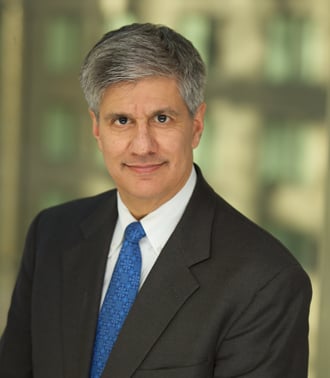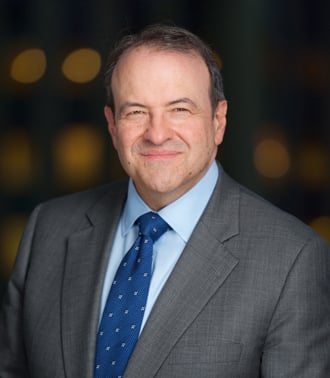SDNY Enjoins Government from Prosecuting Truthful Non-Misleading Off-Label Promotion
In a significant decision involving the metes and bounds of permissible off-label promotion, Judge Paul A. Engelmayer of the US District Court for the Southern District of New York recently granted a preliminary injunction for Amarin Pharma Inc. (Amarin) against the US Food and Drug Administration (FDA) precluding the FDA from prosecuting Amarin for truthful and non-misleading off-label promotion. Amarin Pharma, Inc. et al. v. U.S. Food and Drug Administration, et al., No. 1:15-cv-03588 (S.D.N.Y. Aug. 7, 2015). Of most significance, Judge Engelmeyer rejected the government’s argument that the Second Circuit’s holding in U.S. v. Caronia, 703 F.3d 149 (2d Cir. 2012) reversing an off-label promotion criminal conviction on First Amendment grounds was a “fact-bound” decision limited to the issues in that case. Instead, Judge Engelmayer held that Caronia stands for the proposition that the government “may not bring an action based on truthful promotional speech alone, consistent with the First Amendment.”
After reaching this conclusion, Judge Engelmayer tackled the speech at issue. Amarin had submitted the text of specific statements it wished to make about a study regarding off-label use of Vascepa, a drug approved to treat patients with very high triglycerides. With the benefit of the FDA’s revision of that specific text (which included additional disclosures it wanted Amarin to make), Judge Engelmayer carefully parsed through the language of the statements and disclosures, arriving at text that he found to be truthful and non-misleading.
While the decision is significant in extending First Amendment protection to promotional speech about pharmaceuticals, it also raises many questions about just what type of speech will be considered truthful and non-misleading so as to be cloaked in First Amendment protection.
Judge Engelmayer’s Opinion and Order
In 2012, the FDA approved Amarin’s new drug application for Vascepa for treating adult patients with “very high triglycerides” (defined as triglyceride levels above 500 mg/dL of blood). Later, Amarin also sought approval for a second indication for the treatment of patients with “persistently high triglycerides” (between 200 and 499 mg/dL of blood) who are already on statin therapy, i.e., patients with triglyceride levels that are elevated, but not as high as the triglyceride levels for which Vascepa was approved. In April 2015, the FDA denied Amarin’s application seeking approval for this second use, not because of any concerns regarding the drug’s effectiveness in lowering triglyceride levels (which was “undisputed”), but because of uncertainty as to whether reducing the triglyceride levels of people with persistently high triglycerides ultimately reduces cardiovascular risk.
After the FDA refused to approve this indication, Amarin filed suit against the FDA, seeking a ruling allowing it to: (i) make certain truthful and scientifically accurate statements regarding the study that demonstrated Vascepa’s effectiveness in lowering triglyceride levels; and (ii) provide physicians with 13 peer-reviewed publications. Amarin also proposed making a number of additional disclosures to assure that its statements were non-misleading, including that the FDA has not approved Vascepa to reduce the risk of coronary heart disease.
After Amarin filed its complaint, the FDA issued a letter to the company, attempting to moot the dispute by agreeing that Amarin could make some of the statements and disclosures to physicians set forth in its motion, modifying other statements and disclosures and suggesting additional disclosures. If Amarin agreed to these conditions, the FDA said it would not bring a misbranding action against the company, which the FDA reiterated in its opposition brief.
In its reply, Amarin agreed to certain of the additional disclosures proposed by the FDA, but declined to adopt the others, thus preventing the FDA from mooting the controversy. In its decision, the court first rejected the government’s position that there was no case or controversy because Amarin still faced a “non-extinguished threat of a misbranding prosecution for speech it proposes to undertake as to Vascepa.”
The court reviewed Caronia at length and noted several times that, to the extent the FDA sought to raise arguments similar to those it had raised in Caronia or to challenge the holding in Caronia, its recourse would have been to seek rehearing or appeal the decision, which it did not do. For example, the court stated that “[h]ad the FDA believed that Caronia gravely undermined the drug approval process, it should have sought review of that decision.” The court made clear that it was required to follow the Second Circuit’s “definitive construction of the misbranding statute.” The court also rejected the government’s view that Caronia is a “fact-bound decision that turned on the particular jury instructions and government jury addresses” at that trial. To the contrary, Judge Engelmayer stated that his “considered and firm view” is that Caronia precludes a government prosecution based on truthful and non-misleading speech alone.
Judge Engelmayer then closely reviewed the statements and disclosures Amarin sought to make, the FDA’s proposed modifications and Amarin’s response. He revised these statements further and held that if Amarin made these statements and disclosures, as modified by the court, and provided the information it sought to provide, Amarin’s promotion of Vascepa would be neither false nor misleading.
The court granted Amarin’s request for a preliminary injunction, allowing it to “engage in truthful and non-misleading speech promoting the off-label use of Vascepa, i.e., to treat patients with persistently high triglycerides.” It held that “under Caronia, such speech may not form the basis of a prosecution for misbranding” because the “statements and disclosures that Amarin proposes to make to doctors relating to the use of Vascepa to treat persons with persistently high triglycerides, as such communications have been modified herein, is truthful and non-misleading.”
Analysis
This case is noteworthy because it is the first time that a pharmaceutical company has obtained an injunction prohibiting an FDA misbranding challenge to the use of truthful marketing materials. Two prior companies that have sought similar rulings—Allergan Inc. and Par Pharmaceutical Companies Inc.—were both under investigation for off-label promotion when they sued the FDA under similar theories, and both companies were required to dismiss their actions in connection with the settlements they ultimately reached with the government regarding those allegations of off-label promotion.
Although the court’s decision is an important application of Caronia, there are several reasons why the decision is unlikely to have broad applicability beyond the fact that it reflects the view of a district court based on a decision of the Second Circuit that has not yet been followed by any other circuit. The Amarin decision is by no means a license for companies to begin promoting drugs off label in what they regard as a truthful and non-misleading fashion.
First, a number of facts specific to this case are likely to keep the holding limited to this particular case. For example, as the court noted, because of the “unusual and extensive regulatory history” between Amarin and the FDA, Amarin had the ability to “base its proposed communications about Vascepa almost entirely on statements by FDA itself.” Specifically, Amarin had a letter from the FDA acknowledging that the study it conducted in pursuit of its indication for patients with persistently high triglycerides met its statistical endpoints and had significantly reduced these patients’ triglyceride levels, confirming its efficacy in lowering triglyceride levels. In addition, the court noted that it is “undisputed that Vascepa is safe, insofar as it is safely used for persons with [very high triglycerides] and . . . the FDA has allowed a chemically similar dietary supplement to be sold to the public.” Thus, the unique facts of this particular case may have made both the FDA and the court more willing to allow the company to make statements promoting Vascepa off label. Other companies seeking to promote drugs for unapproved uses are not likely to have as strong a claim as Amarin as to the efficacy and safety of its proposed off-label use.
Second, the language explicitly approved by the court allows Amarin to engage in the off-label promotion of Vascepa using this approved language without fear of prosecution. If Amarin’s messaging differs from this approved language in any way, however, it puts itself at risk of prosecution. In practice this means that in order to ensure its messaging complies with what the court approved, it can disseminate the approved statements and disclosures only in writing. As the court specifically stated, “[a] manufacturer that leaves its sales force at liberty to converse unscripted with doctors about off-label use of an approved drug invites a misbranding action if false or misleading (e.g., one-sided or incomplete) representations result.”
Moreover, although it may not be difficult to determine what constitutes “truthful” off-label information, what constitutes “misleading” off-label information may be far more difficult to determine. Using Judge Engelmayer’s language, whether speech is “one-sided” or “incomplete” is a very fact-specific inquiry not easily capable of a definitive prediction of how a court will view such speech. In fact, Judge Engelmayer acknowledged this point, noting that “[r]easonable minds may differ over whether a given statement is misleading in context; and developments in science or medicine may make a once-benign statement misleading.” Thus, a company is unlikely to be able to craft off-label messaging on its own that it can be assured will not be construed by the FDA or a prosecutor as misleading. In other words, unless a company has received confirmation from the FDA or a judge that its off-label messages are truthful and non-misleading, it runs the risk of being prosecuted for its off-label promotion.
It is worth noting that although Amarin also sought protection from prosecution for causing the submission of false claims under the False Claims Act on the theory that the government could seek to hold Amarin liable if physicians submitted claims seeking reimbursement for off-label uses, the court declined to rule on this request, finding there is no ripe controversy at this time.
Finally, it is also worth noting that the FDA may appeal this decision, or may address it in a revised guidance on off-label promotion. Judge Engelmayer pointedly noted that the FDA has indicated that it intends to issue a revised guidance related to its “regulatory regime governing communications about medical products,” but to date has “declined to state what the status or timetable is with respect to such guidance.”





